INTERVIEWING THE INTERNATIONALLY REKNOWNED PIANIST MS.MARILENA LIAKOPOULOU (GENIKO LIKIO HORTIATI - P28 ACTIVITIY)
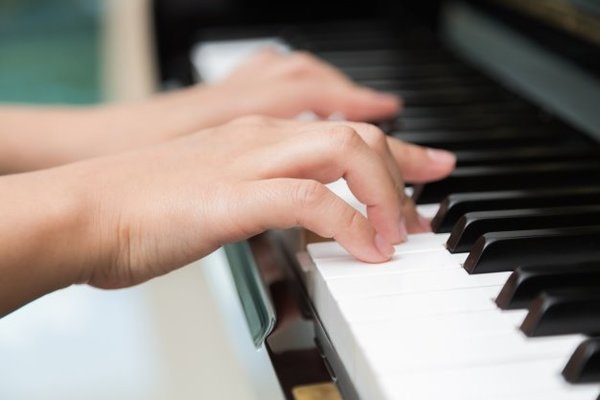
On the 23rd December 2020, the Erasmus+ pupils of A1 class of Geniko Likio Hortiati, together with their teacher Mrs. Dombrou, had the opportunity to talk to Ms.Marilena Liakopoulou in a video conference room. Ms.Liakopoulou, an internationally renowned pianist, holds the position of top piano player in the Thessaloniki State Orchestra. During our conversation, the students asked Ms. Liakopoulou questions about her personal and professional career, her goals, motivations and ways of achieving her goals as well as the difficulties she has faced, the successes and failures she has experienced in her long course. Her kindness and sincerity impressed and excited all of us. Certainly, many students were inspired by her professional development and her ethos.
Initially Evi Gantina and Alexandros Kekos presented a short biographical note on the life and work of Ms.Liakopoulou, and then the students asked their questions about her career:
Asteris Akrivopoulos: What does music mean to you?
Ms.Liakopoulou: Music is my whole life, it is the pill for my pain, it is my day, my breath, my daily life… I do not believe that man can live without music.
Evi Kazaki: What place do you think music has in the life of modern Greeks?
Ms.Liakopoulou: While the modern Greek constantly listens to music and has become part of his/her daily life, many times he/she does not understand it but listens to it because of fashion. I advise you to listen to all kinds of music but be selective and observe the way your body reacts to the notes. Besides, while I represent the genre of classical music, I often listen to other genres, such as jazz, traditional. If the music does not speak to you, then you should not pay due attention to it.
Evi Kazaki: How do you feel when you are on stage in front of so many people, doing what you love?
Ms.Liakopoulou: Before every event, throughout the preparations, I am overwhelmed with anxiety, or rather artistic anxiety, even today. But as soon as I get on stage, it disappears. There I am transformed and all the negative emotions give the baton to the joy and to an unexpected energy that gives me the strength to appear in front of the audience and to give my best.
Rania Zardava: Did your parents support you in your decision to take up music?
Ms.Liakopoulou: My parents were very supportive in the beginning. They saw my longing for music and very quickly enrolled me in the conservatory. In fact, my father had found a trick to help me not lose my appetite for study. He asked me to play the exercises for him, which I was bored with, convincing me that he found them very melodic and that he liked listening to me play them. However, when I turned 18 and studied Law, my parents thought I should pursue a career as a lawyer. Of course, I completed my studies, but without practicing this profession since music had already begun to win me over.
Rania Zardava: At what age did you realize that you wanted to pursue a career in music?
Ms.Liakopoulou: I realized this when I realized that, although I went to Law, I did not want to deal with this subject. I started my official appearances at the age of 19 and soon took a leading role in the state orchestra, replacing my retired teacher. There I realized how much I loved music.
Mikaela Andredaki: Do you think that your stay in Greece and especially in Thessaloniki favored your career or was it a brake on your development? Do you think that if you lived in a foreign city or in Athens you would have a different evolution?
Ms. Liakopoulou: Unfortunately, Thessaloniki cannot offer me sufficient employment. I give two to three concerts a year. If I did not have contacts with other countries and specifically France, and invitations to play in recitals abroad, the job in Greece would not be enough. Nevertheless, I do not regret living and working in Thessaloniki. I generally feel like one of the lucky artists who has been offered many opportunities.
Nikos Gersos: Would you advise a young person today to deal professionally with music and especially with classical music?
Ms.Liakopoulou: Although the field of music today is difficult and does not give many opportunities, I strongly advise you to follow your dreams in whatever you do.
Alexandros Kekos: You are a woman of Art, ranked among the spiritual people with special sensitivities and concerns. How much do the problems of our society affect you in your work and how much do you influence the society with your music in order to overcome the pathogenesis?
Ms. Liakopoulou: It is a fact that a musician is a sensitive chord that pulsates in every problem of society. He/She is the sensitive antenna that locates the impasses of society. With my music I offer consolation, a way out of people’s impasses, an expression in the positive or negative emotions people feel.
Dimitris Deligiorgakos: As a person and as an artist, how are you dealing with the pandemic and the strict restrictions that arise from it? Have you been affected by the pandemic as a professional?
Ms.Liakopoulou: As a person, I also have difficulties with this whole situation. But I am more pressed as an artist, because I miss my audience. The public is my mirror. In their eyes and in their applause I meet my soul.
Katerina Andredaki: Doing an account, do you think you made the right choice in your profession?
Ms.Liakopoulou: Yes, for sure, without a second thought. Although during my long career I have encountered many difficulties and I have had many disappointments, my love for music helped me not only to overcome the obstacles but also to create opportunities. That is why I will conclude with this tip: Be a fighter. In life you will face many difficulties and adversities, but do not give up. Have faith in yourself and turn any failures into a springboard for something creative. If you follow this tip, your success will be certain.
COLEGIUL NATIONAL 'MIHAI EMINESCU', PETROSANI, ROMANIA
On 18 January 2021, the students from “Mihai Eminescu” National College, Petrosani, Romania, who are in the target group of the project PROIECT, ref no. 2018-1-IT02-KA229-047925_3, attended an online meeting. On this occasion 4 students presented “The Workers’ Colonies from the Jiu Valley”. The presentation focused on the history and architecture of the colonies from Lupeni, Vulcan, Petrosani and Petrila. At the end of the presentation the other participants expressed their views and Mr. R. Szedlacsek provided valuable information about the cultural life of the colony from Petrila.
The activity was disseminated on the Facebook group of the project (https://www.facebook.com/photo?fbid=3672307479524402&set=pcb.1373720236294654).
This is the power point presentation made by the students:
P21. Workers' colonies from the Jiu Valley.pptx
On 22 February 2021, the students from “Mihai Eminescu” National College, Petrosani, Romania, who are in the target group of the project PROIECT, ref no. 2018-1-IT02-KA229-047925_3 (2018-2021) attended an online meeting. We were honoured to have Mr. Ioan Dorel Schiopu among us, the vice stationmaster of Petrosani railway station, a valuable member of our community whose overall knowledge is not only worthy of admiration, but also an element that successfully managed to keep us intrigued during the presentation.
Although the idea of something so trivial such as a railway station is one that almost every individual would be reluctant to show any interest in, Mr. Schiopu managed to keep us at the edge of our seats by unfolding and presenting some widely unknown facts about it, which proved to be something of paramount importance when it comes to our cultural heritage. Before it was officially opened in 1870, various silver coins dating back to 4th century B.C. discovered in the foundation of the railway station and on the railway embankment from Petrosani up to Livezeni, prove the fact that the Jiu Valley represented a key trade route between the territories separated by the Carpathians as well as the antiquity of the socio-economic life in the Jiu Valley.
We were also pleased to be taken along an interactive history lesson regarding the beginnings of what we call now ‘railway transport’. What was called a technological breakthrough back in the 19th century made its debut with an engine capable of generating only 10HP, far away from being a match to the 2300+ HP engines that roam the railways of today. Despite the initial fuss, the military masterminds of the time came to the conclusion that this revolution in terms of transport would only represent an impediment from a combat perspective. Only after a few years, after a further development in terms of technology, did they realize they were completely wrong. As far as Romania is concerned, the period of communism represented the peak of our railway development, especially in the Jiu Valley due to the major industrial impact made by the discovery of coal.
Towards the end of our meeting, Mr. Schiopu brought to our attention a masterpiece in terms of landscapes. He encouraged us to take the route to Tg. Jiu in order to marvel at the beauty of the Jiu Gorge, travelling by train being the only option to enjoy the full range of frameworks.
By Denis Raducan
The activity was disseminated on the Facebook page group of the project (https://www.facebook.com/photo?fbid=3768304149924734&set=pcb.1399416043725073)
On 25 March 2021, the students from “Mihai Eminescu” National College, Petrosani, Romania, who are in the target group of the Erasmus + project: “Promotion Of Identity, European Culture and Tradition”, ref no. 2018-1-IT02-KA229-047925_3 (2018-2021) had an online meeting with the actors of “I. D. Sârbu” Dramatic Theatre, Petrosani, who act in “Petrosani 100” play. On this occasion, we watched together four recorded scenes from this play.
The first scene illustrates, on the one hand, the conflict between generations caused by the refusal of the grandson to continue the family tradition, and, on the other hand, the condition of a miner's wife, who has to take care of the household and children. The main idea of the second scene is the drama experienced by each family, highlighting the possibility that the breadwinner might not return home from work one day. Also, from this scene we learn that after a possible tragedy, the miners’ widows and wives receive an easier job in the mine, to ensure the future of the children, for example as cleaners of the miners’ safety lamps. In the third scene, the focus is on the explosions and the miners’ feelings under these circumstances. Fear and insecurity take over the miners who give in to these dreadful feelings thinking that death is waiting for them. They even start to hallucinate and imagine conversations with loved ones who are no longer alive. In the fourth scene, the actors managed to present, in a special way, the miners’ revolt from 1977, when the miners fought for their rights and for a decent living. With their exceptional qualities, the actors transmitted to us the emotions and feelings that the miners experienced in those moments, especially when President Nicolae Ceausescu arrived.
After watching these touching scenes, we had the pleasure of receiving explanations from the manager of the theatre, Mr. Cosmin Radescu, and each actor who acted in each of these four scenes. They expressed the feelings felt when acting each role in this play and made us understand better the message they transmitted. We learned valuable details about each scene, details which made us understand what things were like back then. Also, apart from the actors’ explanations, a few colleagues who are part of the project had some questions for the actors.
All in all, I strongly believe that this play is worth seeing and that this meeting was for me, as well as for the other colleagues, the best we have ever had in this project so far, because we experienced the feelings that the actors brought to light and we lived with them the moments that the miners lived throughout their lives. After watching these scenes, we look forward to seeing the play in the theater hall of “I. D. Sârbu” Dramatic Theatre, Petrosani, of course, after things return to the way they were before the pandemic.
By Ingrid Bernad
https://www.facebook.com/photo?fbid=3883234405098374&set=pcb.1427555630911114
On 26 April 2021, the students from the target group of the Erasmus + project, PROIECT ref. no. 2018-1-IT02-KA229-047925_3 (2018-2021) attended an online meeting whose guest was Mr. Dorel Schiopu, the executive secretary of the Hunedoara branch of Asociatia Nationala Cultul Eroilor “Regina Maria”.
The aim of the meeting was to inform the students about the activities of this association at national and local level and about the events from World War I in the Jiu Valley.
In the first part of the meeting, Mr. Schiopu talked about the activities of the association and the monuments that honour the memory of our ancestors who died to fight for our country.
In the second part of the meeting, after a brief introduction about the causes of WWI, he talked about the events from WWI in the Jiu Valley. He showed the students detailed maps with the battlefields, with the two coalitions (the Triple Entente and the Triple Alliance), photos of soldiers on battlefields, of commanders and leaders etc., accompanied by detailed explanations.
The meeting was very interactive. The students were asked questions or were invited to express their opinions about different aspects mentioned in the presentation (e.g. why Romania was a belligerent country on the part of the Entente). At the end of the meeting, three students were awarded books by Mr. Schiopu for having answered his questions correctly.
All in all, the meeting was a valuable history lesson that helped the students understand better certain aspects regarding WWI, in general, and the events that took place in the Jiu Valley, in particular, and the significance of certain monuments from the Jiu Valley (e.g. General Dragalina’s monument in the Jiu Gorge, the monuments from Vulcan Pass).
The meeting was recorded and disseminated on the Facebook group of the project.
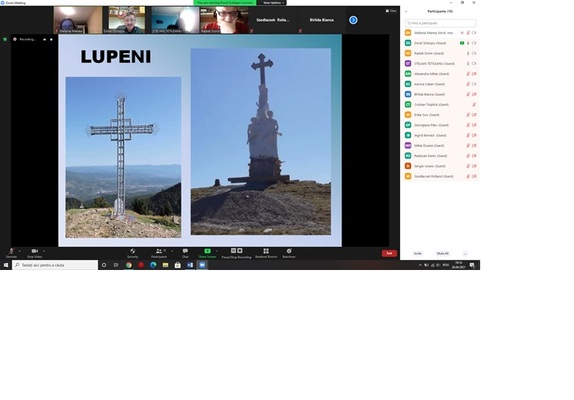
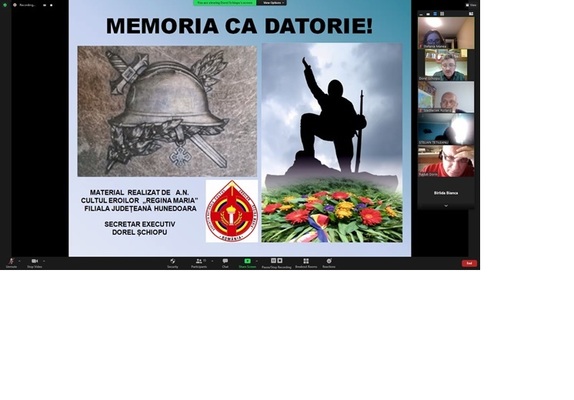
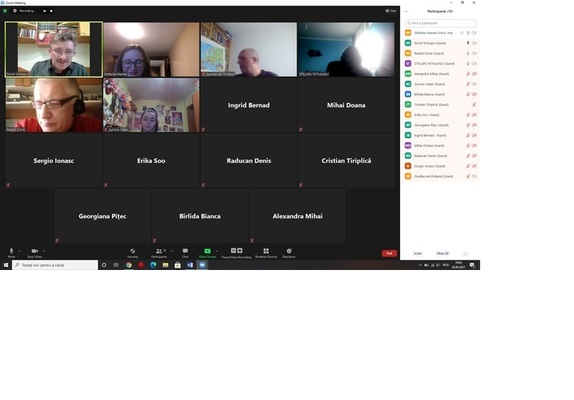
On 13 May 2021, the students from the target group of the Erasmus + project PROIECT, ref. no. 2018-1-IT02-KA229-047925_3 (2018-2021) attended an online meeting whose guest was Mr. Marian Boboc, museum curator of the Mining Museum from Petrosani. Mr. Boboc is also a poet, a member of the Writers’ Union from Romania, author of around 40 history books, most of them part of the documentary cycle “Lives of the Jiu Valley”.
The aim of the meeting was to take a virtual tour of the museum to inform the students about the history of the mining activity in the Jiu Valley and to make them understand how crucial it is to know this if they want to attract other people in our town and to make the story of our miners heard.
The building that houses the history of mining in the Jiu Valley was rehabilitated between 2018-2020 (that is why we could not visit it during C3 mobility in 2019), based on a European-funded project, and was inaugurated on Miner's Day, August 6, 2020.
Guided by Mr. Boboc and with Mr. Szedlacsek’s help, we took a virtual tour of the museum. At the beginning, Mr. Boboc gave us some information about the Anthem of the miners (whose author is unknown) and then, about Sfanta Varvara (Saint Barbara), the protector of the miners. The museum houses collections of rocks, authentic tools used by the miners, uniforms, helmets, personal collections etc.
This museum is “an epic museum”, as Mr. Boboc said, because among the exhibits, the visitors can find ‘stories’ (documents discovered by Mr. Boboc while he was doing research for his books), that change during the year, so each time you visit the museum you discover something new.
The meeting was a really valuable history lessons full of interesting new information about the mining activity, about the miners from the Jiu Valley and their past.
By Bogdan Albu
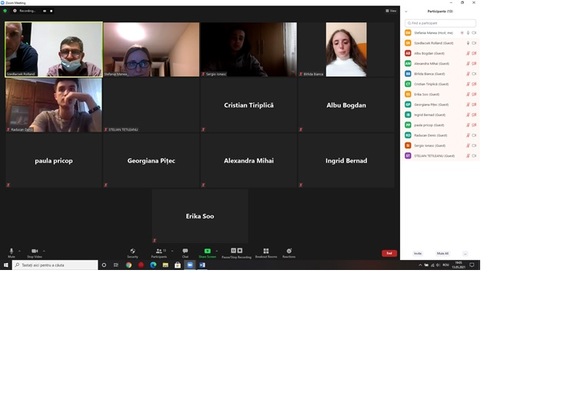
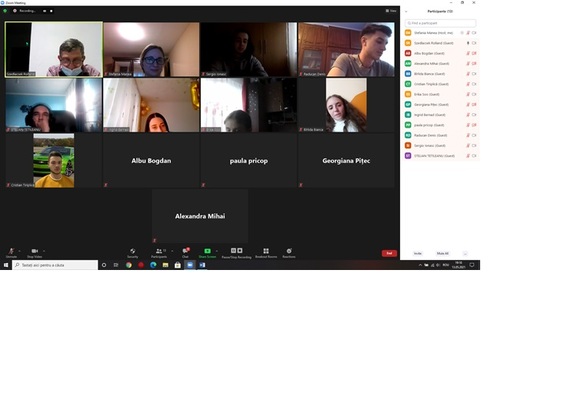
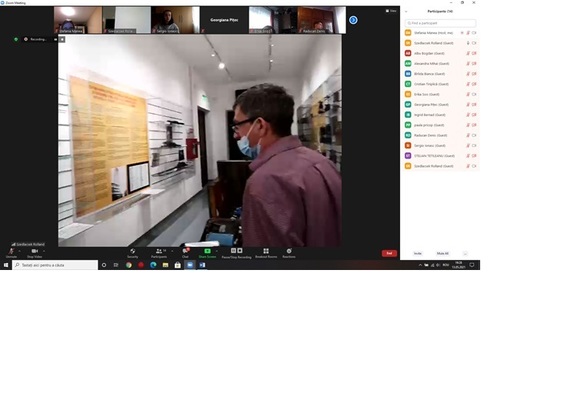
https://www.facebook.com/photo?fbid=4035907716497708&set=pcb.1465688953764448
On 2 June 2021, the students from the target group of the Erasmus + project PROIECT, ref. no. 2018-1-IT02-KA229-047925_3 (2018-2021) attended an online history lesson held by Mr. Dorin Raduti, history teacher, with the following topic: ‘Legacies and memories of communism.’ The aim of the meeting was to familiarize the students with the main features of the communist period in Romania.
The presentation consisted of four parts, all of them being questions. The first part entitled ‘The moment of truth?’ deals with information about the files from the former communist period and the access to study them (‘the battle of the archives’ as he calls it) and the way we interpret the past. The second part, entitled ‘The time of justice?’, deals with the identification and restoration of the victims’ rights, the identification and punishment of the political police officials and the neutralization of the collaborators of the communist regime. The third part, entitled ‘Time of memories?’ deals with three topics: official memory, the memory of resistance to communism and the nostalgic memory. To the last question of the presentation: ‘One last question: ’ Mr Raduti’s answer is: ‘with a (mainly) toxic heritage’ and he gives several arguments to justify his opinion.
#Erasmus+
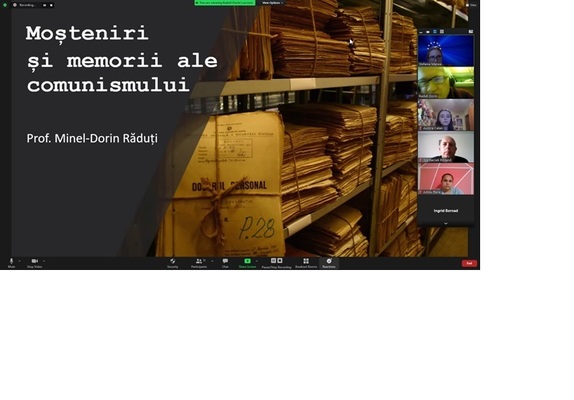
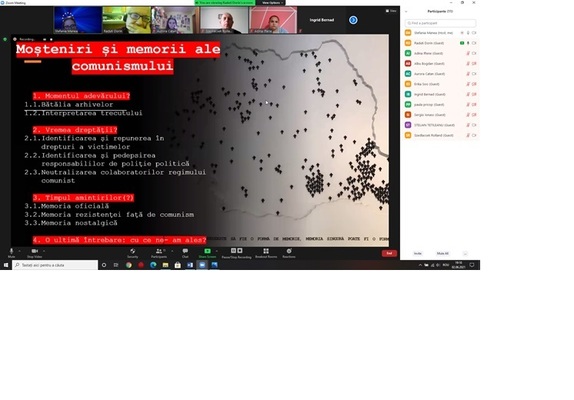
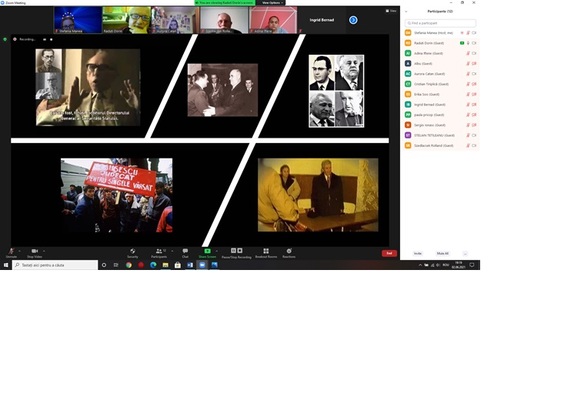
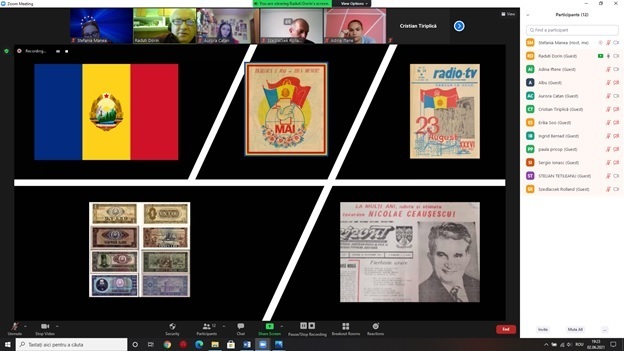
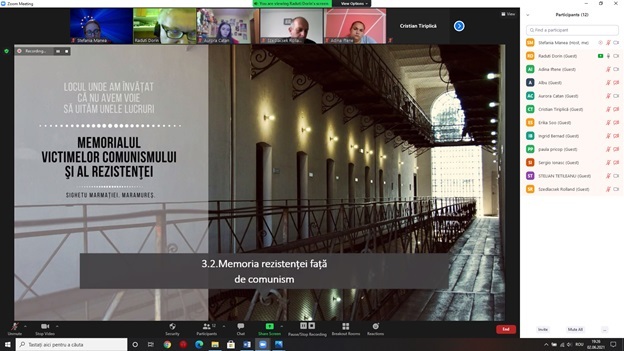
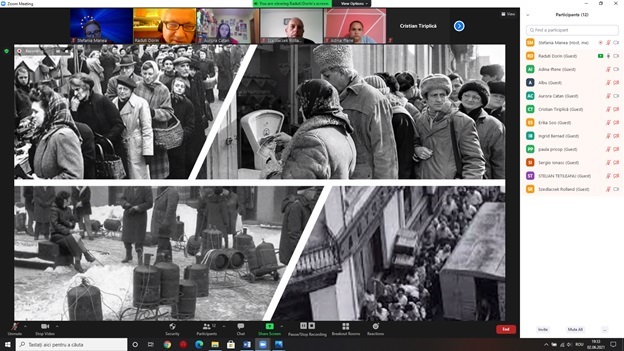
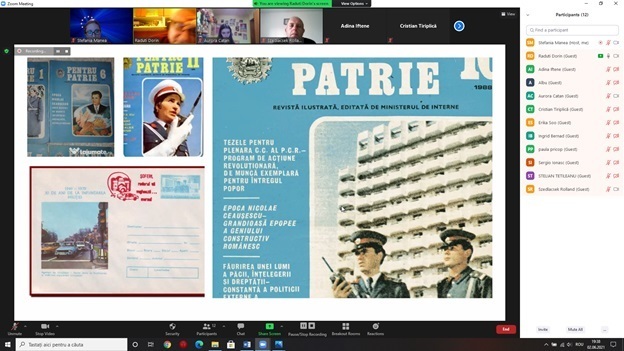
The activity was disseminated on the Facebook group (https://www.facebook.com/photo?fbid=4114114152010397&set=pcb.1485784205088256).